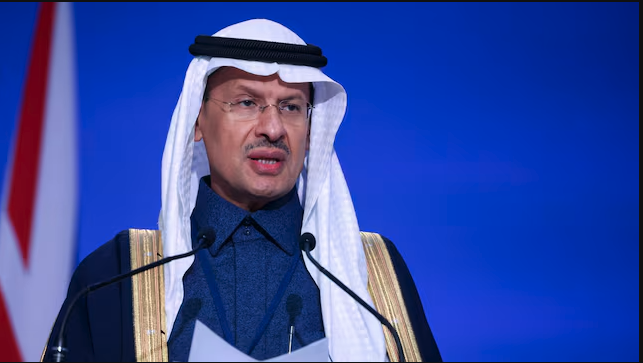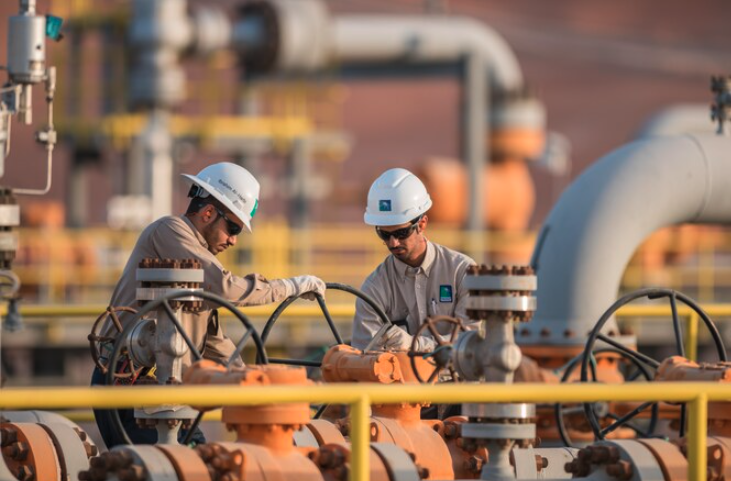RIYADH: Saudi Arabia’s entrepreneurship scene witnessed a transformative surge in investment activity at LEAP 2024 – the Kingdom’s highly-attended startup and technology event.
Several new venture capital funds are set to launch, it was announced at the Riyadh-based gathering, aiming to energize various sectors within Saudi Arabia and the broader Middle East and North Africa region.
Investcorp is spearheading this initiative with a $500 million fund dedicated to supporting growth-stage ventures in Saudi Arabia, bolstered by a $35 million investment from Saudi Venture Capital.
Concurrently, Oasis Capital is preparing to introduce a $100 million fund focusing on early-stage international ventures.
In the gaming and esports sector, the Saudi Esports Federation, in collaboration with the Social Development Bank and the National Technology Development Program, will unveil two funds under its Gaming and Esports Sector Financing Program.
Furthermore, Saudi venture capital firms Merak Capital and Impact46 announced $80 million and $40 million funds, respectively.
Plug and Play Tech Center is also entering the scene with a pioneering $50 million fund aimed at nurturing software and tech ventures in Saudi Arabia and the MENA region.
Meanwhile, Takamol Ventures announced a $53 million venture capital fund at LEAP, targeting early-stage tech companies to fuel innovation.
Fahad Al-Hussain, partner at US-based Seedford Partners, announced during a panel session that the firm is planning to launch a $100 million to $150 million space fund targeting international and local ventures in the sector.
Moreover, Bahrain-based investment management firm Arcapita Capital closed its $500 million Saudi Logistics Fund III.
Lastly, Unifonic is set to launch a $15 million fund focusing on software as a service and business-to-business startups in MENA, Pakistan, and Turkiye, signifying a broadening of investment horizons across the region.
Saudi Arabia’s Salla raises $130m pre-IPO round
Saudi Arabia’s SaaS sector is receiving a significant boost as Salla secured a $130 million pre-initial public offering investment by Investcorp and saw participation from Sanabil Investment and STV.
Established in 2016 by Nawaf Hariri and Salman Butt, Salla has been at the forefront of empowering merchants by enabling them to establish their e-commerce online shops swiftly, often within hours.
The funding was channeled through the Investcorp Saudi Pre-IPO Growth Fund LP, a strategic initiative designed to infuse equity growth capital into a diverse portfolio of companies primarily located in Saudi Arabia.
“This investment propels us forward in our ongoing mission to open opportunities and empower individuals, SMEs, and enterprises to start and expand their businesses both within and beyond Saudi Arabia. We are committed to delivering innovative, customer-centric solutions that simplify and enhance the e-commerce experience for our merchants,” Hariri said.
UAE’s HRtech RemotePass closes $5.5m in a series A round
UAE-based HRtech startup RemotePass has successfully closed a $5.5 million series A funding round, with 212 VC leading the investment.
The round also saw contributions from an array of prominent investors including Endeavor Catalyst, Khwarizmi Ventures, and Oraseya Capital, as well as Flyer One Ventures, Access Bridge Ventures, A15, and the Swiss Founders Fund.
Founded in 2020 by Kamal Reggad and Karim Nadi, RemotePass specializes in offering businesses the ability to seamlessly onboard, manage, and compensate their workforce, particularly in regions where they may not have a local legal entity.
Following its undisclosed pre-series A round in 2021, led by BECO Capital and supported by Wamda, Khawarizmi VC, and Flat6Labs, as well as Wealth Well, and a syndicate of Saudi investors, RemotePass is setting its sights on the Kingdom’s market.
Saudi-based proptech Buildnow closes $9.4m seed funding
Saudi Arabia’s Buildnow secured $9.4 million in seed funding, comprising both equity, amounting to $6.5 million, and debt, totaling $2.9 million.
Raed Ventures and Khwarizmi Ventures took the lead in this funding round, which also saw significant participation from international venture capitalists and influential local angel investors, including Abdulla Elyas, the co-founder of Careem.
SPEEDREAD
• Oasis Capital is preparing to introduce a $100 million fund focusing on early-stage international ventures.
• In the gaming and esports sector, the Saudi Esports Federation will unveil two funds under its Gaming and Esports Sector Financing Program.
• Saudi venture capital firms Merak Capital and Impact46 announced $80 million and $40 million funds, respectively.
• Plug and Play Tech Center is also entering the scene with a pioneering $50 million fund aimed at nurturing software and tech ventures in the region.
• Takamol Ventures announced a $53 million venture capital fund at LEAP, targeting early-stage tech companies to fuel innovation.
Launched in 2022 by Hisham Al Saleh, Rahat Dewan, and Abdulla Sheikh, Buildnow introduces a build-now-pay-later model that significantly benefits the construction industry.
The platform facilitates material procurement on credit for buyers, simultaneously ensuring upfront cash payments to SME suppliers, thus streamlining the supply chain and financial operations in the construction sector.
The fresh influx of capital is set to catalyze Buildnow’s growth trajectory. The funds are earmarked for attracting and hiring top-tier global talent to bolster the Buildnow team, positioning the startup for expansion.
Saudi-based BRKZ secures $8m series A round
Saudi Arabia’s BRKZ has secured an $8 million series A co-led by 9900 and BECO Capital, with participation from Aramco’s Wa’ed Ventures, Knollwood Investment Advisory, RZM Investment, and MISY Ventures.
Founded in 2022 by Ibrahim Manna, BRKZ is a B2B contech that provides a large selection of suppliers and materials through its platform, as well as multiple delivery and payment options.
BRKZ will use the new funding to expand its footprint across Saudi Arabia and beyond.
Saudi fintech startup Rabeh Financial closed $800k seed round
Saudi fintech Rabeh Financial closed a $800,000 seed investment round in collaboration with Mjalis Investment Co. and several angel investors, bringing the company’s valuation to $8 million.
Founded in 2022 by Mohammed Al-Salmi and a group of advisors, Rabeh Financial aims to improve the experience of trading ownership and knowledge by allowing investors and entrepreneurs to discuss and assess investment ideas using AI and data analysis technology.
With the new funds, Rabeh plans to increase its presence both inside and outside of the Kingdom.
KSA’s RasMal acquires Pentugram
Saudi Arabia’s equity management platform RasMal has acquired UAE’s Pentugram to expand its offering into private capital investment management solutions, for an undisclosed value.
Through the acquisition, Pentugram’s clientele will gain access to RasMal’s services, while RasMal will leverage the platform to provide investors and fund managers with solutions.
KSA’s Zetta Technologies raises $1.5m
Saudi Arabia’s Zetta Technologies closed a $1.5 million pre-seed funding round from CoreVision.
The company offers tech services as a subscription with a flexible payment plan, enabling large organizations and companies to benefit from their devices.
































